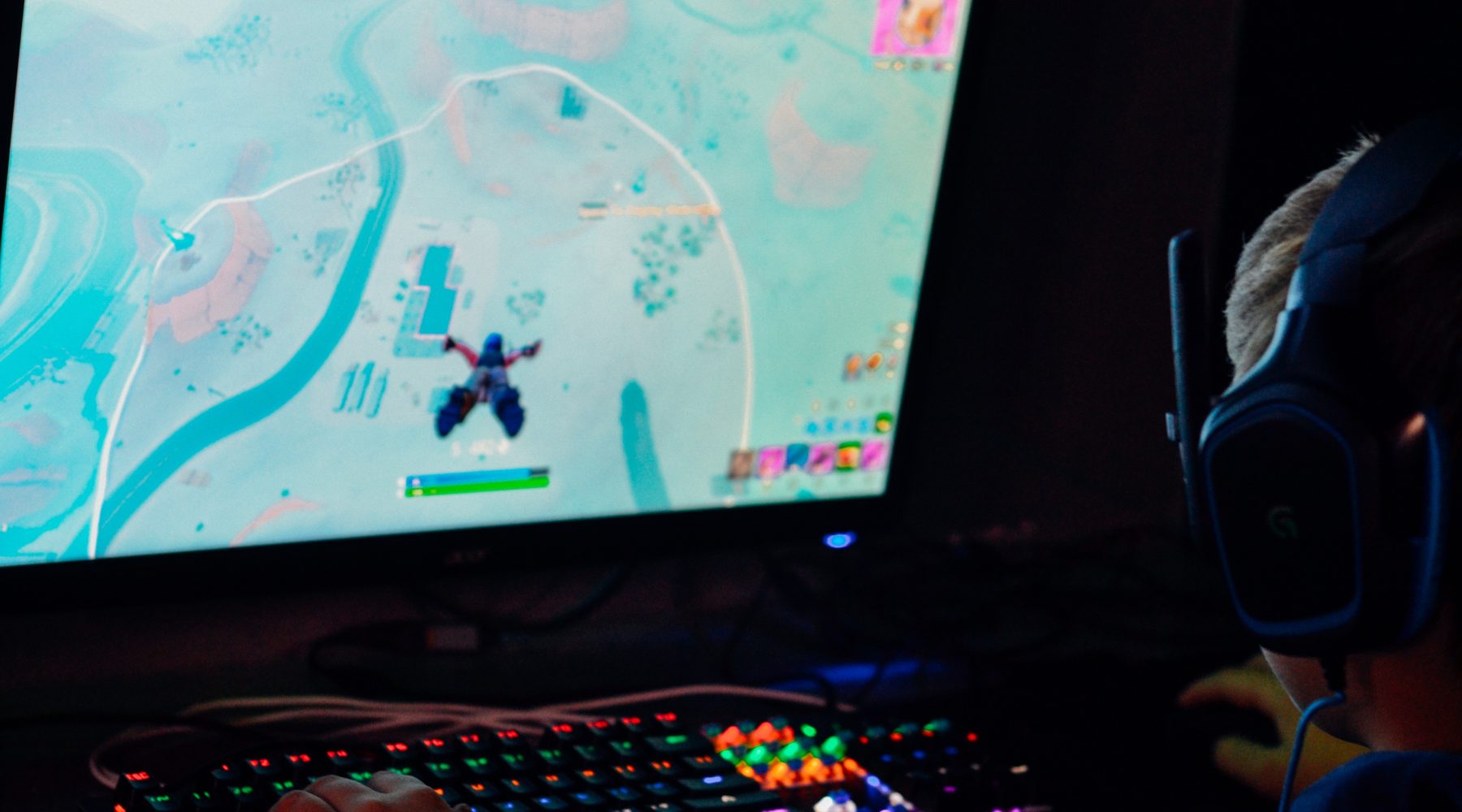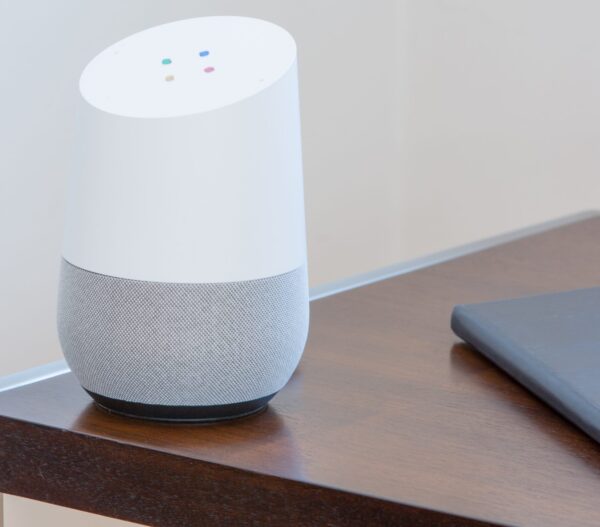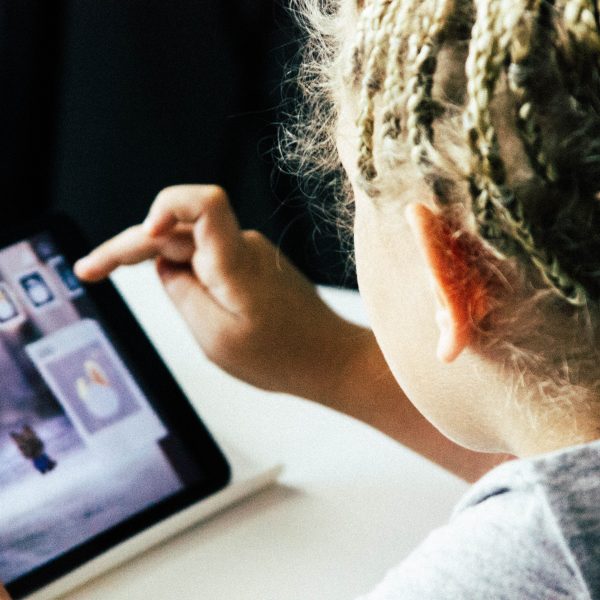Play-based approaches to understanding a digitally immersed world

The technological landscape looked very different in 2007. At the time, early childhood educators could not have guessed at the impact of the release of the first iPhone on their lives – and more importantly the lives of the children whose learning and development they support. For many of us, the iPhone shifted computing profoundly.
Up until 2007, the interface for modern computers was a keyboard and mouse. To use and control computers, the user needed to have a level of literacy and fine motor skills that many children aged under five are still developing. As a result, aside from the presence of the occasional computer in an early learning space, educators did not have to give too much thought to providing young children with access to computer based technology.
However, in 2007 with the launch of the iPhone, the world was introduced to the portable touchscreen. For pre-schoolers, this became their personal computing moment. Within three years, Apple made that touchscreen larger and launched the iPad. A decade on from the launch of the iPhone, we have seen a whole new technology space designed for and around children: apps, games, iPad cases, family capabilities on phones, cheaper and more accessible communication devices for children with additional needs and continued debate and challenge around trying to establish the role of the early childhood educator amid the rapid change.
Beyond the usual concerns relating to screentime and the impact of technology on young children ( with educators well supported by Early Childhood Australia’s Statement on digital technologies and young children) increasingly the safety of young children in online environments is being considered.
In support of learning more about what it means for young children to be safe online in early childhood,, the Australian Federal Police and the Alannah and Madeline Foundation have begun the process of developing a resource to support educators, parents and preschool aged children in this space. Within this space, work is being done with educators, parents and researchers. As one of the team involved, I am pleased and proud to say we have already learnt a lot.
For example, prior to commencing our work, we knew children are online, but we have now identified they are online in many different ways:
- When they watch a YouTube video on their parents’ phone
- When they ask an AI machine like (Google Home or Alexa) to turn on Netflix
- When they watch their parents GPS in the car
- When they play an online game that connects to other players
As a result of knowing this, we have a responsibility to support children to understand how technology and digital networks work, so that they can navigate these spaces in a safe and informed way.
Professor Susan Edwards, the Director of the Early Childhood Futures research program at the Australian Catholic University (ACU) is a leading thinker in this space. And, through her research and guidance, we have come to understand that young children need to develop a concept of the digital network if we are to help them understand concepts like “online safety”.
In outlining for children what it means to be a part of a digital network, we have to support them to understand that they can send a message from a computer to a phone, or help them understand that talking on a video chat means the other family member might be on the other side of the world. It also means giving them the knowledge to understand that the cute photo of them which is on Mum’s Facebook page can be seen by lots of different people.
As educators, to support us in guiding children, we need to have access to resources and practice that help us to convey these ideas, in ways which are appropriate to a child’s age and stage of development.
When children develop this knowledge, we can then help them to learn and explore more complex ideas about the world they live in such as:
- The importance of consent and asking to take a photo of someone and post it
- That images and videos and things they see in digital networks can be manipulated and might not be true
- That just like in the real world, if we see things that scare us or make us worried, we need to seek support from a trusted adult.
The work Alannah and Madeline Foundation are doing is to design and test how these concepts can be explored through play-based approaches. Our work seeks to understand how we can create practices and activities (sometimes using technology, but most of the time not) to teach these things to children.
If we are successful and able to do this in our early learning environments, and support parents to help reinforce the ideas we are teaching, then children have an excellent start to living a far more respectful and positive life in the digital world.
If parents and educators can develop these types of learning, activities and conversations in the early years, we will establish habits for ourselves and young children that continue through primary and secondary school, with the hope that the habits and practices can evolve, allowing adults can be more engaged and supportive of young people as they begin to participate in the online world.
At times, the digital world as it currently exists can feel dominated by negative experiences, conflict and danger. In our profession we all know the importance and capacity of early childhood education, by starting things before children head to school we are giving them a head start that can lead to improved learning and development as the grow. The digital world and online safety are no different.As ECEC educators, we have a role to play not only in being a part of the change in this negativity, but also a responsibility to support children’s learning about digital networks and online safety.
If you would like to participate in this change making work, please contact Daniel Donahoo via email at [email protected]
Popular

Workforce
Quality
Practice
Provider
Research
How one teacher is using Little J & Big Cuz to build empathy, understanding and confidence in First Nations learning
2025-12-08 07:15:19
by Fiona Alston

Provider
Workforce
Quality
Fair Work Commission confirms forced resignation grounds in case involving early learning provider
2025-12-08 07:30:23
by Fiona Alston

Policy
Practice
Quality
Research
A new path forward: Australia’s First Nations Education Policy emerges to reshape learning for First Nations children
2025-12-08 08:00:28
by Fiona Alston
















